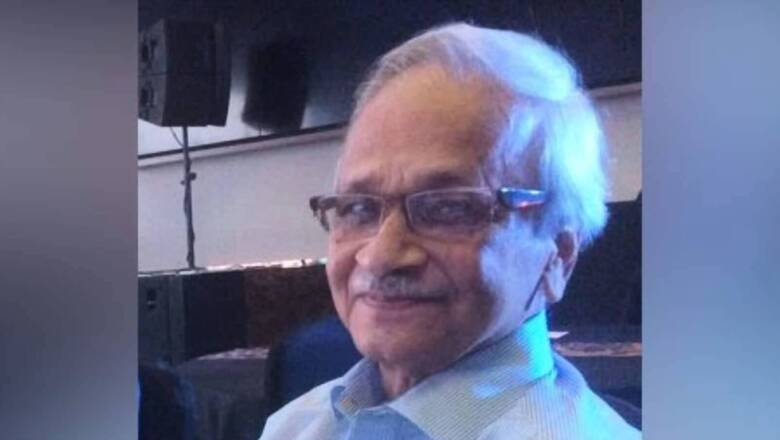
views
Dr Dilip Mahalanabis, the man who pioneered the worldwide use of the Oral Rehydration Solution or ORS, will be posthumously awarded Padma Vibhushan in the field of medicine (paediatrics). A household staple now and prescribed mostly to combat water loss during illnesses like diarrhoea and cholera, ORS has globally saved over five crore lives. But, the man behind its discovery is more or less an unsung hero.
Dr Mahalanabis is among six luminaries — others include former Uttar Pradesh chief minister Mulayam Singh Yadav, former external affairs minister in the UPA government SM Krishna and tabla maestro Zakir Hussain — selected for the country’s second highest civilian honour Padma Vibhushan, as per an official statement released on the eve of Republic Day.
The medical professional returned from the US to serve in the 1971 Bangladesh Liberation War, working tirelessly in the overflowing refugee camps near West Bengal’s Bongaon. It is there that he first demonstrated the effectiveness of the simple and inexpensive solution.
Acknowledged by The Lancet as “the most important medical discovery of the 20th century”, ORS has reduced deaths caused by diarrhoea, cholera and dehydration by 93 percent especially in infants and children. Mahalanabis died of lung infection and other age-related ailments in Kolkata in October last year at the age of 88, and never patented his legacy even as the life-saving solution revolutionised diarrhoea treatment.
According to the World Health Organization, diseases such as diarrhoea and cholera are among the leading causes of mortality in infants and young children in many developing countries, where the patient dies of dehydration.
Dr Mahalanabis worked in cholera control for WHO in Afghanistan, Egypt and Yemen from 1975 to 1979 and, during the 1980s, as a WHO consultant on research on management of bacterial diseases. He was awarded the Pollin Prize by Columbia University in 2002.
Mahalanabis, the doctor, and how he came up with ORS
Born on November 12, 1934, in West Bengal, Dr Mahalanabis completed his studies from Kolkata and London. In the 1960s, he joined the Johns Hopkins University International Centre for Medical Research and Training in Kolkata and researched oral rehydration therapy, as per a report published in The Indian Express.
He had done extensive research on the life-saving abilities of a simple solution of sugar and salt, which would increase the body’s capacity to absorb water. Realising that could save numerous lives, he and his team prepared solutions of salt and glucose in water and began storing them in large drums from where patients or their relatives could help themselves. He had to work hard to convince people that the new treatment would work. So, he told them it was an oral form of saline.
The solution started working, and the fatality rate in the doctor’s camp came down to 3 percent as compared to 20 and 30 percent in camps using only IV treatment. The then head of the bacterial diseases unit of WHO, Dr Dhiman Barua, visited his camp and began to popularise ORS as a method of treatment for diarrhoeal diseases.
Thanks to the legacy left by Dr Mahalanabis, India now observes July 29 as ‘ORS Day’. The union health ministry has specific guidelines on the use of ORS, which is mostly available in powder form at hospitals, clinics and pharmacies.
Read all the Latest India News here



















Comments
0 comment